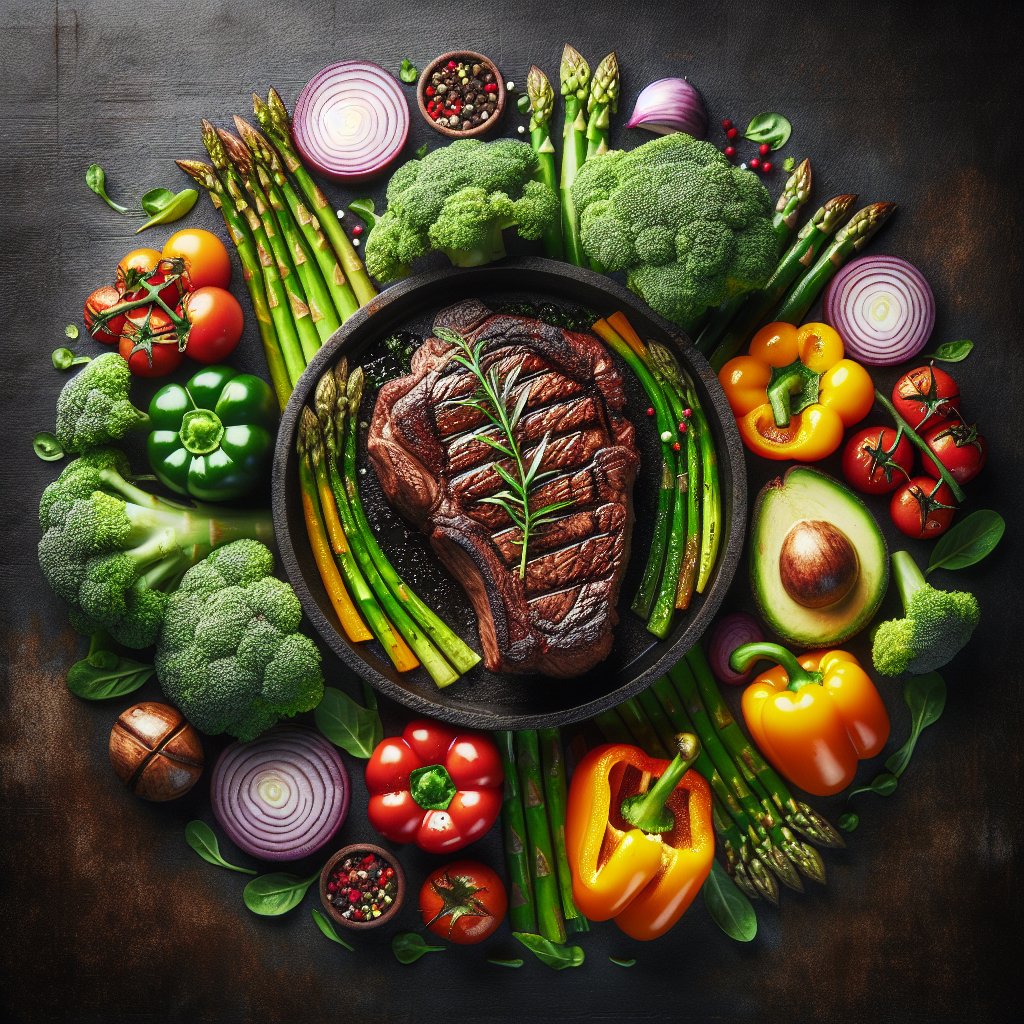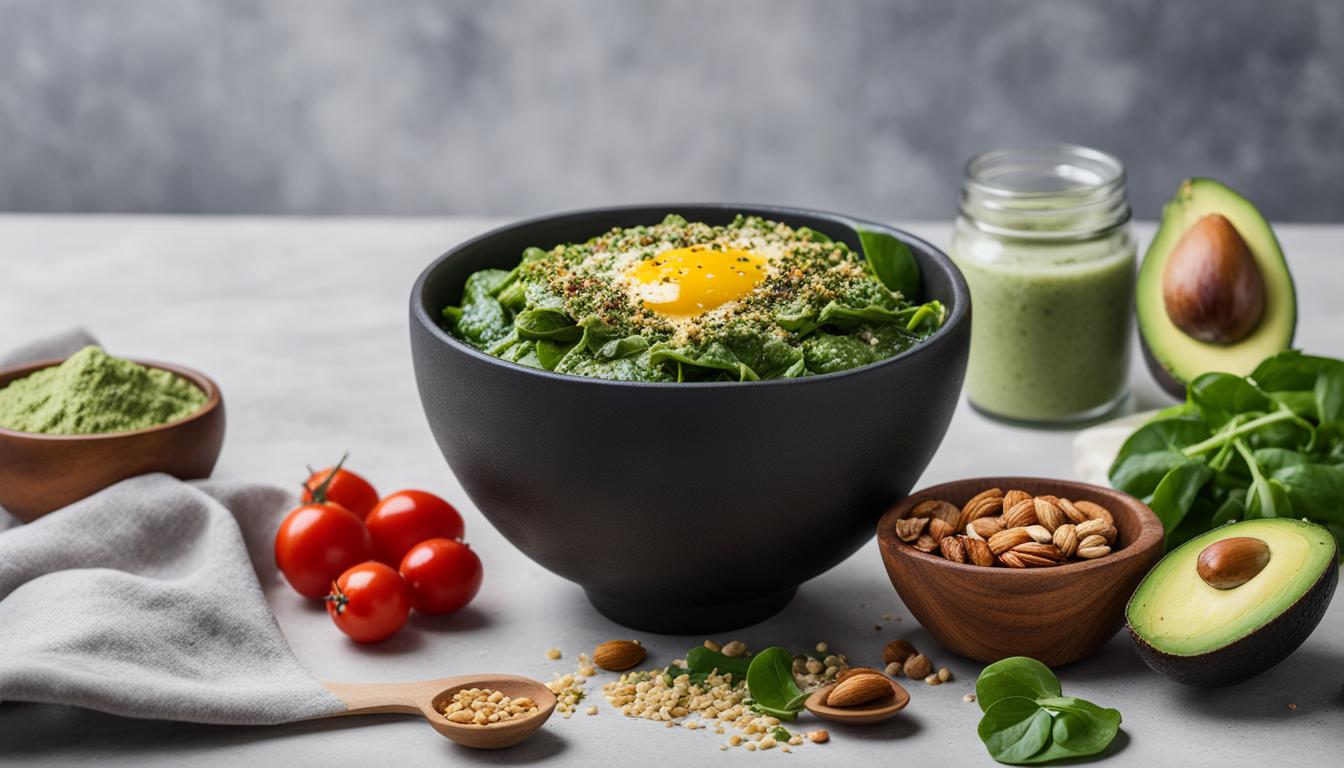Can I Eat Steak Everyday on Keto? Expert Tips, Benefits, and Risks Revealed!
Brief Introduction to the Popularity of the Keto Diet and Eating Steak as a Staple
Hey there, keto enthusiasts! If you’re curious about whether you can eat steak every day on the keto diet, you’re in the right place. The ketogenic diet has been gaining massive popularity in recent years, and for good reason. This low-carb, high-fat diet has shown promising results for weight loss, blood sugar control, and overall health improvement.
As part of the keto lifestyle, many people have embraced steak as a staple in their daily meals. And why not? Steak is not only delicious but also a fantastic source of high-quality protein and healthy fats. However, like with any dietary choice, there are potential benefits and risks to consider when consuming steak daily on a keto diet.
Potential Benefits of Consuming Steak Daily on a Keto Diet
Steak is a powerhouse of essential nutrients, including iron, zinc, and B vitamins. These nutrients play vital roles in metabolism, energy production, and overall well-being. Moreover, the high protein content in steak can support muscle maintenance and repair, making it an ideal choice for individuals following a keto diet, which emphasizes moderate protein intake.
Risks of Consuming Steak Daily on a Keto Diet
While steak offers numerous nutritional benefits, it’s important to be mindful of potential risks associated with its regular consumption. Some studies suggest that a diet high in red meat, such as steak, may be linked to an increased risk of certain health issues, including cardiovascular disease and certain types of cancer. Additionally, the cooking process of steak at high temperatures can lead to the formation of compounds that might have adverse effects on health.

What is the Keto Diet?
Hey there, keto enthusiasts! So, you’ve probably heard about the ketogenic diet, but what’s all the buzz about? Well, the keto diet is a low-carb, high-fat diet that offers a myriad of health benefits. The fundamental principle of this diet is to shift the body’s primary fuel source from glucose to fat, resulting in a metabolic state known as ketosis.
Here’s how it works: when you significantly reduce your carb intake, your body begins to produce molecules called ketones from the breakdown of fats in the liver. These ketones then become the body’s main source of energy, leading to efficient fat burning. As a result, individuals on the keto diet can experience substantial weight loss and enhanced mental focus.
This shift into ketosis also offers other advantages, from stabilizing blood sugar levels to improving cholesterol and blood pressure. It’s no wonder that the keto diet has gained popularity for its remarkable ability to bring about positive changes in overall well-being.
Benefits of Eating Steak on Keto
Steak is a fantastic addition to a ketogenic diet for several reasons, making it a tempting option for those asking, “Can I eat steak everyday on keto?” Firstly, steak is a great source of high-quality protein, which is essential for maintaining and building muscle mass, especially important if you’re active or working out.
Additionally, steak is packed with essential nutrients such as iron, zinc, and various B vitamins, including B12. These nutrients are vital for energy production, immune function, and overall well-being. Furthermore, the high-fat content in steak contributes to a feeling of satiety, helping to keep hunger at bay and making it easier to control caloric intake.
Considerations for Eating Steak Daily on Keto
While steak is undoubtedly a delicious and satiating option for a keto diet, there are some important considerations to keep in mind before making it a daily staple.
Firstly, consuming steak every day on a keto diet may lead to issues with excessive protein intake. High protein intake can potentially kick you out of ketosis and hinder your weight loss efforts. Additionally, excessive protein consumption can strain the kidneys over time.
Another drawback is the impact on cholesterol levels. While the long-held belief that dietary cholesterol has a direct impact on blood cholesterol levels has been debunked, it’s essential to recognize that some individuals may experience an increase in LDL cholesterol in response to high red meat consumption.
Finally, relying solely on steak for your protein needs might lead to an imbalance in overall nutrient intake. While steak is rich in protein and several essential nutrients, it’s crucial to have a varied diet to ensure you’re obtaining all the necessary vitamins and minerals for overall health and well-being.
Variety and Balance in a Keto Diet
When it comes to following a keto diet, it’s important to highlight the significance of embracing a diverse range of foods. While steak is undoubtedly a delicious and satisfying option, relying solely on it can lead to nutritional gaps. Incorporating other sources of protein, such as chicken, fish, and plant-based proteins like tofu and tempeh, can ensure a well-rounded amino acid profile.
Furthermore, diversifying fat sources is crucial for obtaining essential fatty acids and micronutrients. Avocados, nuts, seeds, and olive oil are fantastic choices to incorporate healthy fats. Additionally, including a variety of non-starchy vegetables provides an array of essential vitamins, minerals, and fiber necessary for digestive health.
By incorporating a diverse range of protein, fats, and vegetables, you can ensure a balanced and nourishing keto diet that supports overall well-being and long-term success.
Expert Opinions and Studies
When it comes to the ketogenic diet, there has been extensive research and expert opinions on the impacts of frequent steak consumption. Nutritionists and dietitians have found that including steak in your keto diet can have several benefits. A study published in the American Journal of Clinical Nutrition indicated that a high-protein, low-carb diet, like the ketogenic diet, can lead to improved weight loss and maintenance of lean body mass. Additionally, steak is a rich source of essential nutrients such as iron, zinc, and B vitamins, all of which are vital for overall health.
Furthermore, research conducted at Harvard Medical School suggests that the high-quality protein in steak can help promote satiety and reduce overall calorie intake, potentially aiding in weight management. However, it’s important to emphasize the significance of moderation and the overall balance of nutrients in a keto diet. While steak can be incorporated into your daily meals, it’s essential to pair it with a variety of low-carb vegetables and healthy fats to ensure a well-rounded and sustainable keto lifestyle.
Tips for Incorporating Steak into a Keto Diet
Steak can be a delicious and satisfying addition to a balanced keto meal plan. When it comes to including steak in your diet, portion control is key. A serving size of steak on a keto diet is typically around 3-6 ounces, depending on your individual protein needs. It’s important to balance your steak with healthy fats and low-carb vegetables to create a well-rounded meal.
When it comes to cooking methods, grilling, broiling, or pan-searing steak are great options for a keto diet. These methods allow the excess fat to drip off, resulting in a leaner cut of meat. Pairing steak with complementary foods such as avocado, leafy greens, or roasted vegetables can enhance the nutritional profile of your meal and provide a satisfying balance of macros.
Monitoring Your Health
When following a ketogenic diet, it’s crucial to regularly monitor your health markers to ensure that you’re reaping the maximum benefits of this lifestyle. Consult healthcare professionals who can guide you on adjusting your dietary choices based on your individual needs and responses.
Regular monitoring of health markers like blood sugar levels, ketone levels, cholesterol, and overall weight can provide valuable insights into how your body is responding to the keto diet. For instance, studies have shown that the ketogenic diet can positively impact markers of metabolic syndrome, such as reducing blood glucose levels and improving insulin sensitivity (Kosinski, J. R. et al., 2017).
Consulting with healthcare professionals, such as your primary care physician or a registered dietitian, can help you make informed decisions about your dietary choices. They can offer personalized recommendations based on your health history, lifestyle, and specific goals.
Remember, the ketogenic diet is not a one-size-fits-all approach. By monitoring your health markers and seeking professional guidance, you can tailor your dietary choices to optimize your health and well-being while enjoying the benefits of incorporating steak into your keto meal plan.
Conclusion
In conclusion, the feasibility of eating steak daily on a keto diet is certainly possible, but it comes with several considerations. While steak is a great source of protein and healthy fats, it’s important to emphasize the significance of balance, moderation, and personalized nutrition.
Research has shown that consuming moderate amounts of red meat, including steak, can be part of a healthy ketogenic diet. However, it’s crucial to vary your protein sources to ensure you’re getting a wide range of nutrients. Incorporating other protein-rich foods such as fish, poultry, and plant-based proteins can provide a more balanced nutritional profile.
Furthermore, personalized nutrition should always be at the forefront of any dietary plan. Individuals have unique needs and tolerances, so consulting with a qualified nutritionist or healthcare provider to tailor your keto diet, including the consumption of steak, to your specific requirements is highly recommended.
Ultimately, while enjoying steak on a daily basis can be a delicious and satisfying component of a keto lifestyle, it’s essential to maintain a diverse and individualized approach to nutrition to support overall health and wellbeing.


